Like dominoes lined up perfectly in a row, coronavirus began to knock down businesses all over the world one after another.
Ismail Boali's atelier in Lisbon was one of those places that were not left unscathed by the pandemic, which is plunging the global economy into its worst crisis since 2008.
A fashion house built on the foundation of love, Casa de Moda Boali had to shutter its door soon after the always-vibrant capital of Portugal went into lockdown to slow the spread of the deadly virus.
Ismail, who has Iranian roots, entered the "beautiful world of colors and lines" in Norway five years ago and continued to pursue his newly found passion after moving to Portugal.
"I began taking professional courses here to learn new things, and it's been a never-ending journey for me," the gifted artist told Via News in an interview.
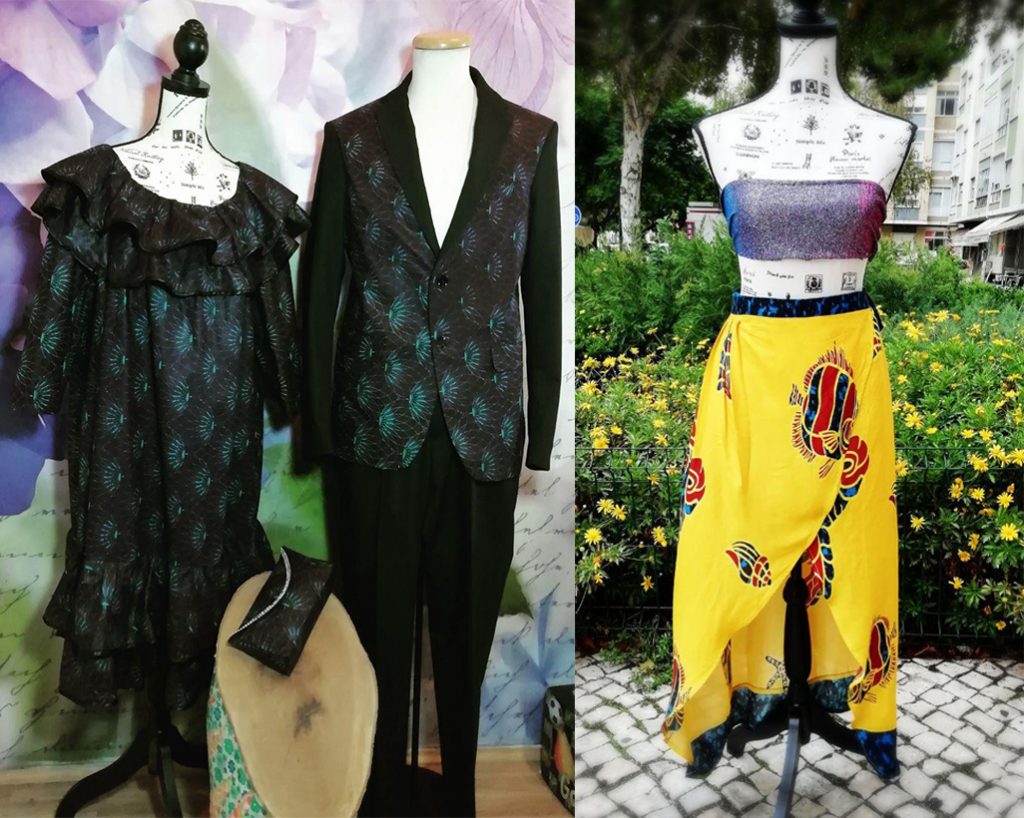
A year and a half back, Ismail opened his atelier in Sacavém, where he has experienced "some of the most special, blissful, and magical" moments of his life.
"It's a great blessing to be able to do what you love and interact with people, especially the Portuguese who are so kind, friendly, warm, and welcoming," he said, adding that time flies at his atelier and he can never get enough of the pleasant atmosphere there.
Ismail's expertise in repairing, altering, designing, and making all types of clothing and accessories enchanted the local people, who came to his support with their trust.
"My favorite craft and field of specialty are designing and making evening and wedding dresses, ranging from one-shoulder styles and mini dresses to full-on gowns," he said, while speaking modestly of his talent in creating glamorous dresses for special occasions.
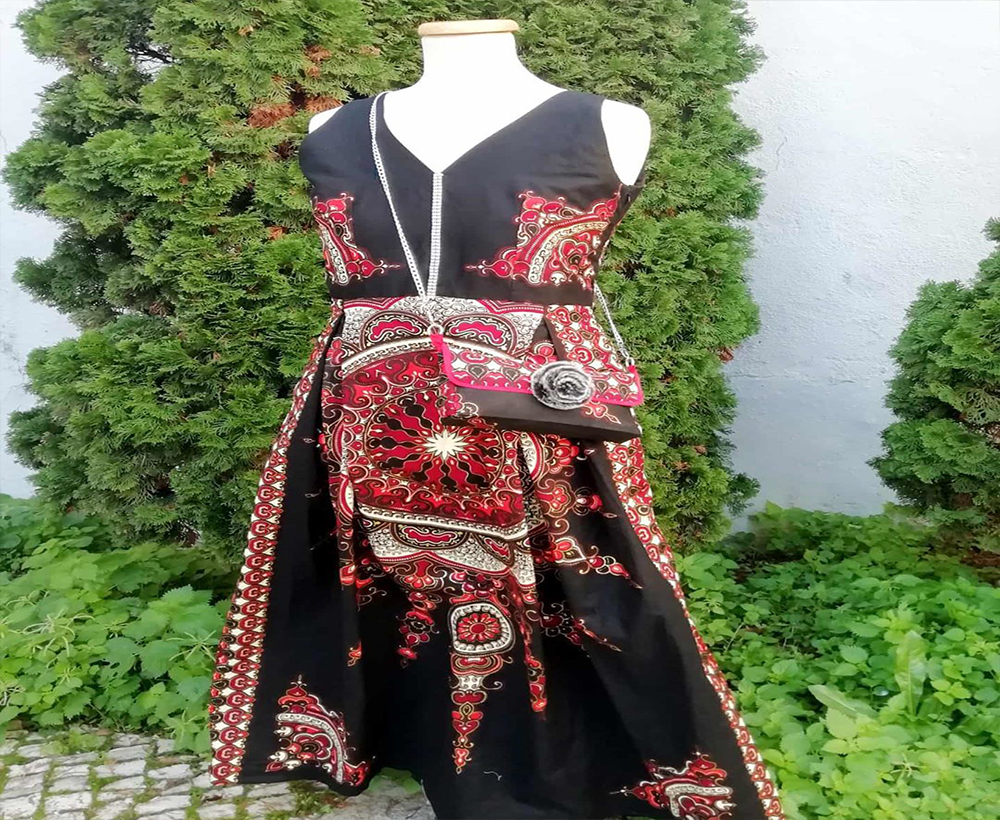
But that celebratory mood gave way to a somber one when coronavirus began sweeping throughout Portugal.
"After quarantine and social distancing measures were announced, we had to close the atelier to protect our personnel and customers. I stayed home for a week, took some rest, and cleared a backlog of work," Ismail said.
However, he could not stay home for long as he was feeling a growing sense of responsibility to give back to a society that had nurtured and supported him in living his dream.
"I decided to join people who were doing everything at their disposal to improve the situation. It felt like a war, and I wanted to contribute as much as I could through what I do best."
That is why he decided to publish a post on his social media accounts, announcing that his atelier is ready to provide services wherever needed.
He soon received a message from the Iranian in Portugal association, whose goal is to help solidify relations between Iran and Portugal.
"They suggested that our atelier make around 400 masks for those who order it. They supplied the necessary material, and I started making the masks," he said.
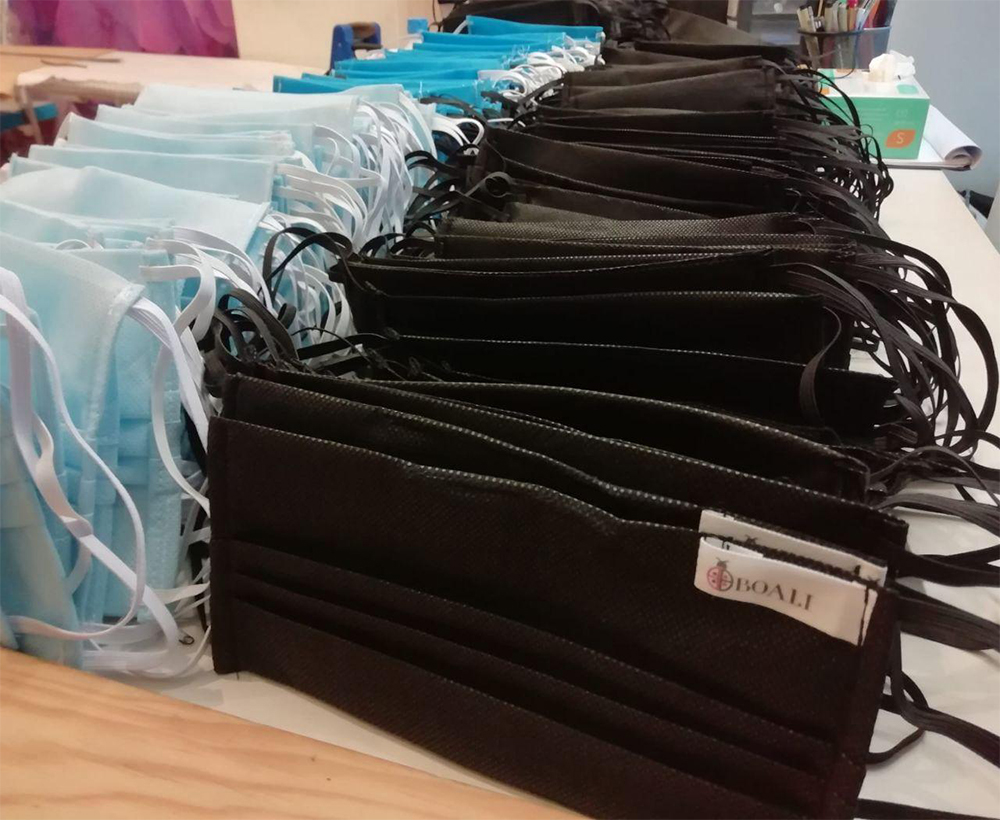
After completing the project, Ismail felt inspired to make more masks and distribute them in his neighborhood.
"We gave people the option of collecting the masks themselves or having them delivered to their homes. We also decided to give them for free to those in need," he said, adding that he was receiving heart-warming messages every day.
But another "pleasant surprise" was in store for Ismail, which took his volunteer project to a whole new level.
"Hospital de Dona Estefânia, one of the largest hospitals in Lisbon, contacted me and asked me to help make protective covers for doctors and other personnel caring for COVID-19 patients. Without any hesitation, I accepted to do it," he explained.
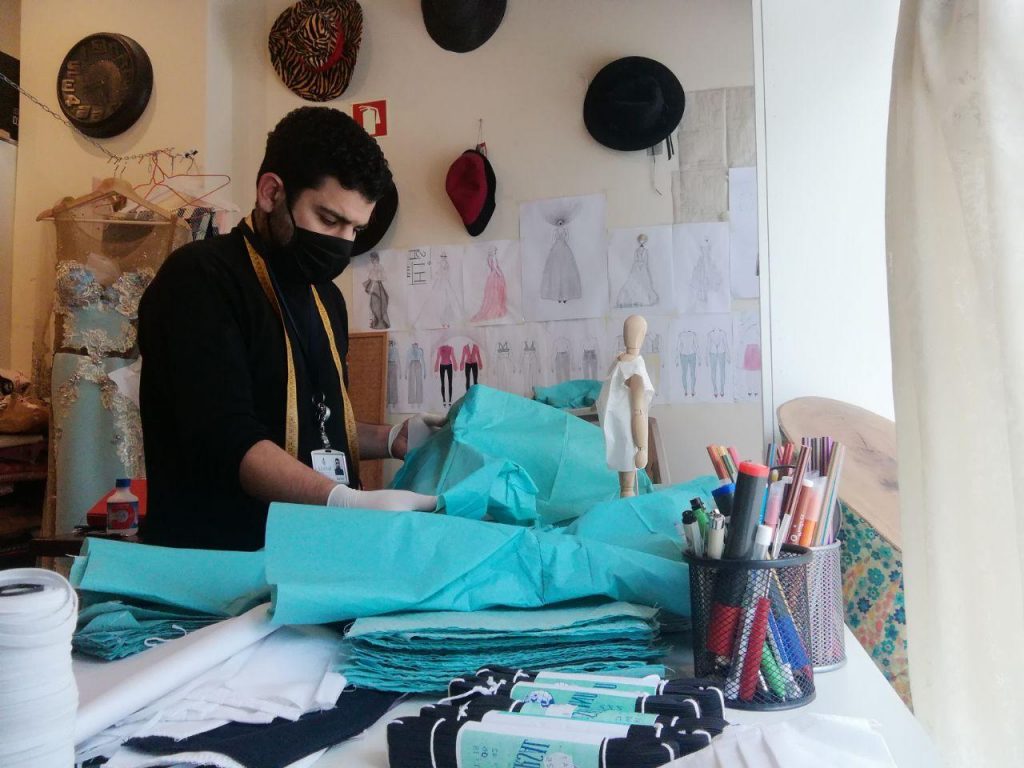
The challenge was that the hospital needed disposable scrubs and he could not make enough of them single-handedly given the emergency nature of the situation.
"I again took to social media to find some volunteers. An Iranian student called Neda volunteered to help me at the atelier, and a Portuguese lady named Olga offered to work from home. We were working about 18 hours a day and could make 250 protective covers in five days," he said.
The "best reward" was when the representative of the project at Hospital de Dona Estefânia sent them a photo of the staff receiving the covers that they had made with love.
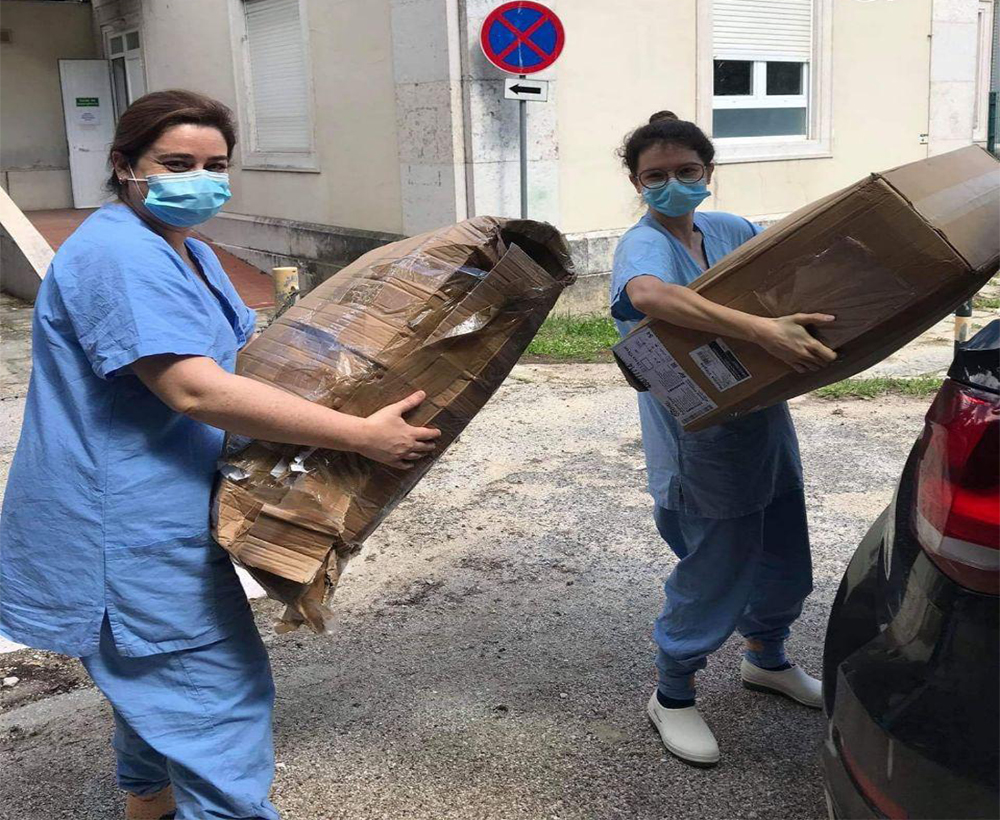
Ismail, who is rightly proud of himself, is still busy making masks and scrubs with the help of other kind-hearted volunteers and plans to expand the voluntary work to other centers and hospitals but needs more helping hands.
"We'll give new volunteers the necessary material and organize them so that we can together support front-line healthcare workers or carry out similar projects."
Ismail says his business may be "breathing its last breath" so he wants to utilize its full potential to advance a worthwhile cause.
Organizations or volunteers who want to reach out to Ismail can contact him through the Facebook or Instagram pages of Casa de Moda Boali, email him at Ismail.boali86@gmail.com, or visit his atelier at Rua Estado da Índia, n 43, Sacavém.
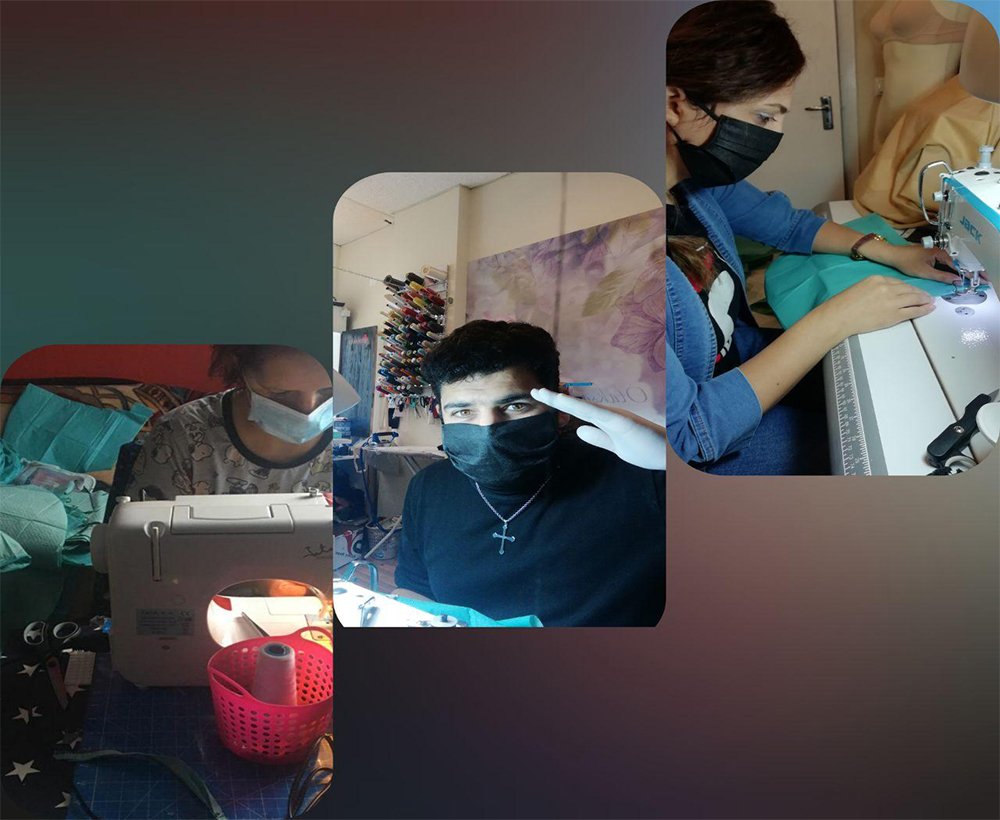
Asked about his message for the people of Portugal, he said the entire world should form bonds that go beyond borders because coronavirus is a worldwide concern now.
"This disease indeed originated in China, but we should look at the situation from a different perspective. We should not be fanning the flames of racism and let this disease divide us. We should all unite and think beyond borders, just as this virus knows no borders," Ismail said.

